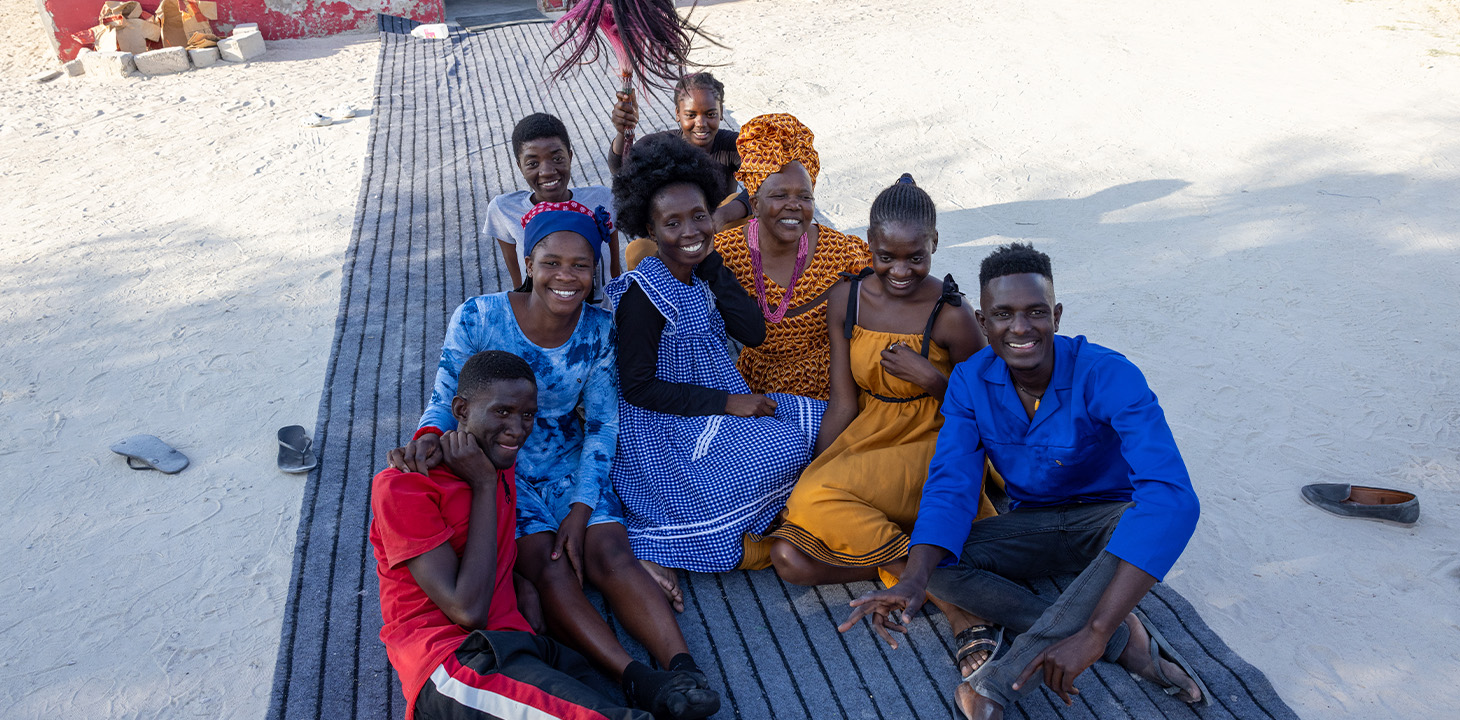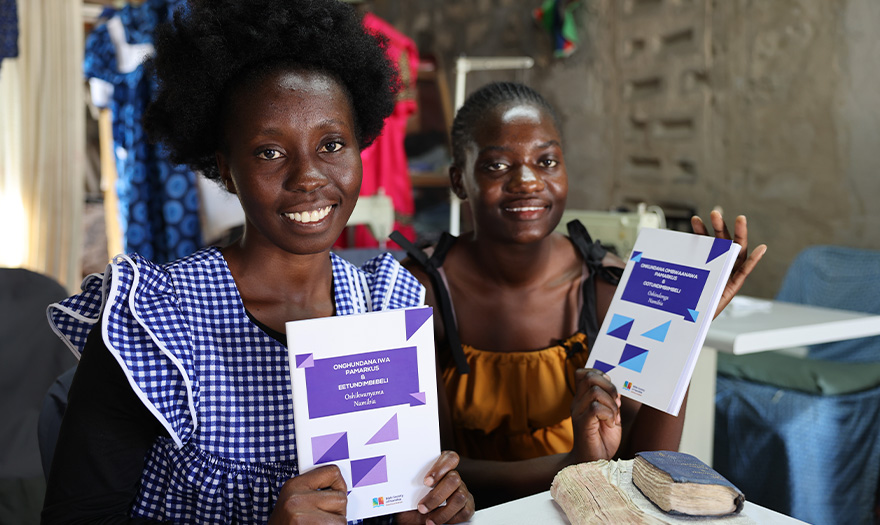Young Namibians look to the Bible for life instructions

Hymns in harmonies can be heard in a yard and yellow sand is dusting under the singers’ dance. There is a class break ongoing at Shekupe Training school in Northern Namibia, in the town of Ondangwa. School is another option for young people whose schooling has been interrupted, for example due to missing school fees, learning difficulties or teenage pregnancy. In the school’s courses one can study computer skills, hospitality or sewing.
– Yaloo, greets Sarlote Nevonga at the school door and rubs her palms together in a circular motion. The word an gesture means thank you, but Namibians also use it as a greeting or acknowledgment. 24-year-old Nevonga once left school in the middle of her pregnancy. Now she is studying to become a seamstress in Shekupe and hopes to be able to support herself and her family. The days are busy, because in addition to family and school, she also works as a part time seamstress.
The Bible goes along with busy everyday life, from the first prayers in the morning to the last sighs of the evening. On Thursdays Nevonga sings in the church choir and on Sundays the whole family goes to church.
– I don’t just want to laze around at home, I like to stay active. God’s word brings out the best version of me. The Bible guides you to the right choices in life. Nevonga says, stroking wearing a thick cotton, self-made dress.
Leena William, a fellow student at Shekupe, nods next to her. William, 28, is studying hospitality. In the evenings she works as a babysitter and a cleaner.
– From the Bible I get strength and comfort for those moments when everyday life feels heavy. When you read the Bible, it helps you in life. God leads through all problems!
These young people look to the Bible for directions in life. Kasheta, 22, is also studying hospitality in Shekupe, with the dream of someday becoming a baker of cakes and delicacies.
– Bible verses help me live a better life. If someone has made me angry, I read the Bible and it helps me feel better, Kasheta says about her relationship with the Bible.
The Bible is translated for the new generations in Namibia
The students of Shekupe represent the major age group of Namibia since more than half of the population of Namibia is under 25 years old. The Bible Societies are currently executing a new Bible translation for them. When a language lives and changes, new translations are needed. The new translation is important for the future of the churches, so that young people can understand the message of the Bible. The main purpose of the translation project is to translate the Bible into a language that reaches young people easily and comprehensively. The new translation is also tested by the readers, and their language skills are already taken into account during the translation phase.
The students at Shekupe speak as their mother tongue Kwanjama or Ndonga, languages which are similar to each other. These languages are the largest ethnic language group in Namibia with more than a million speakers. Local pastors say that in Bible circles young people often ask about the meaning of words in the old translation. Many Namibians do not understand the language used in the current Bible translation.
The Gospel of Mark has been completed earlier and the young people have already received it to read. William is already looking forward to other Bible texts to come.
– I am grateful for the new translation. It brings me closer to God and helps me to know more about God. By reading the Bible, you can listen to what God wants from me and also what he wants to give me. I prefer to read the Bible in my mother tongue. I also know English, but the feeling when reading it is not the same.
Bible Societies started making new translations in 2017, and the New Testament is expected to be completed next year. The entire Bible will be translated in 2032.

Prayer requests from Namibia:
- Thank God for everything
- Pray for the family
- That Namibia would be safe and at peace
- For Bible translators and their work
- Good rains for grain and cattle